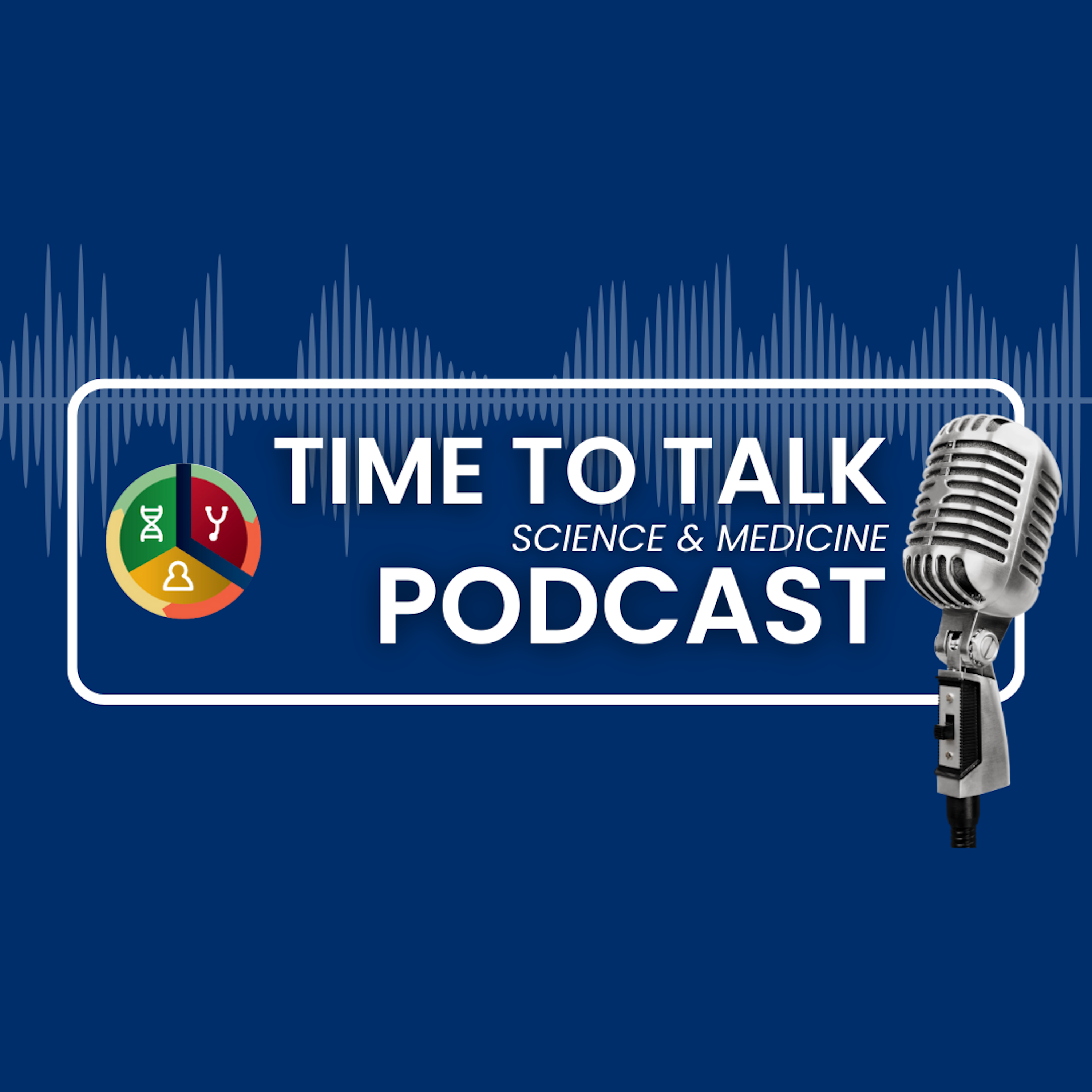TIME to Talk - Science & Medicine
TIME to Talk - Science & Medicine is a podcast from the Translational Institute of Medicine (TIME) at Queen’s University designed to showcase translational research. Hosted by Dr. Stephen Archer and Dr. Charlie Hindmarch, this podcast is designed to highlight translational researchers at Queen's University in Kingston, Ontario, Canada. The main goal of these podcasts will be to focus on the translational researcher, to learn about where they've come from, what motivates them, what are their ‘dangerous ideas’ and how their research will change the world!
Healing the Failing Heart

Get to know our special guest Dr. Aws Almufleh! Dr. Almufleh received his medical degree with First Class Honors from King Saud University, Riyadh, Saudi Arabia in 2012. He then completed a Master of Public Health (MPH) at the University of Miami focusing on epidemiology and clinical research. He did internal medicine residency at McGill University where he served as the Chief Medical Resident. Following cardiology fellowship training at the University of Ottawa Heart Institute (2016-2019), Dr. Almufleh completed an advanced heart failure and cardiac transplantation fellowship at the Brigham and Women’s Hospital/Harvard Medical School (2019-2020) and earned the...
The Doctors We Need: Thoughts on the Training of Medical Students to Become the Doctors Canada Needs
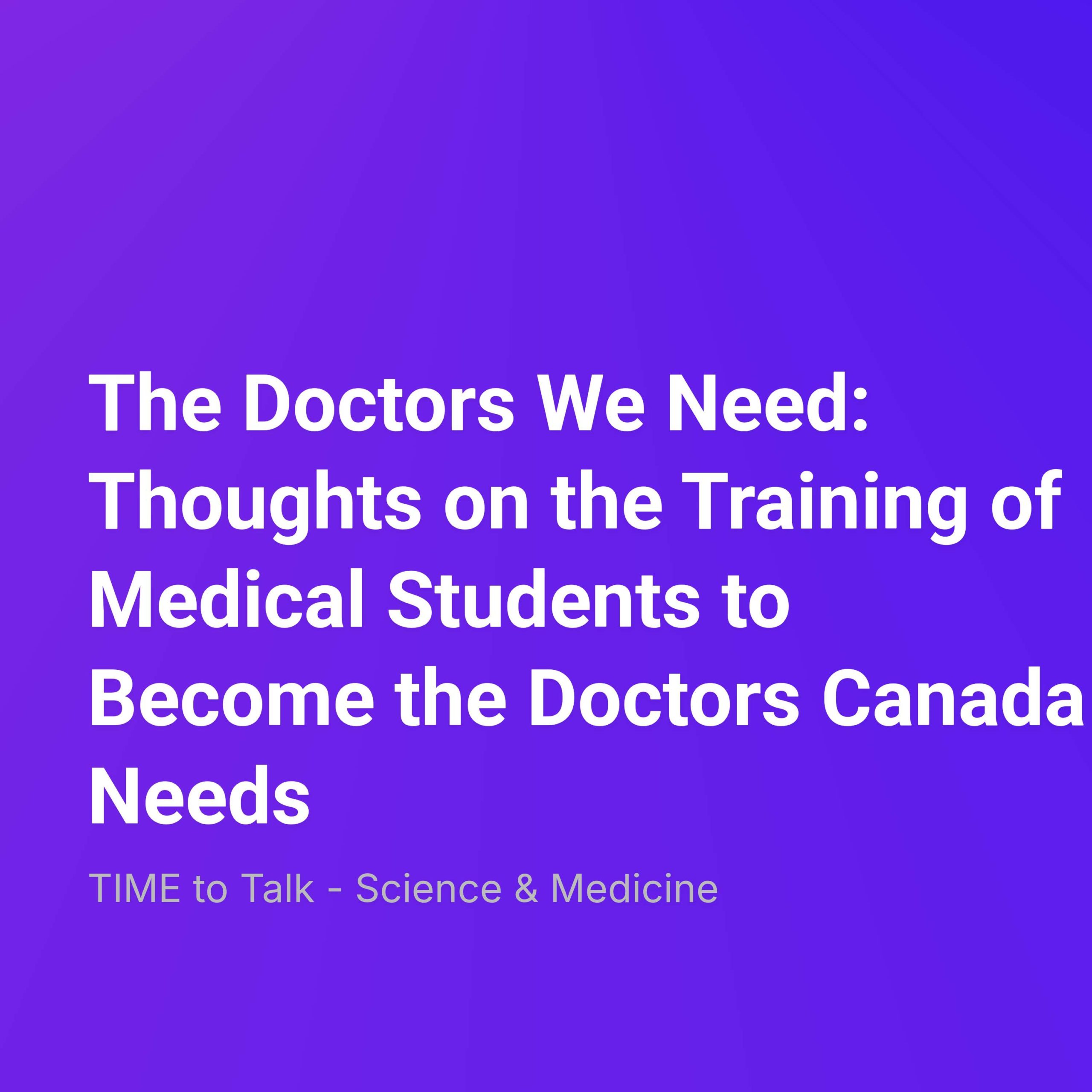
Get to know our special guest Dr. Tony Sanfilippo as he discusses his new book ‘The Doctors We Need – Imagining a New Path for Physician Recruitment, Training, and Support’. Dr. Sanfilippo, a respected cardiologist and former Associate Dean of Medical Education at Queen’s University, confronts a startling reality: in a nation proud of its pledge to universal healthcare, over 6 million Canadians lack a family doctor. This crisis persists despite massive investments in medical education and institutions.
Drawing on over 40 years of experience in the classroom and at the bedside, Dr. Sanfilippo exposes—with elegance, wit, and empathy—ho...
Solving Existential Problems: A Nobel Pursuit
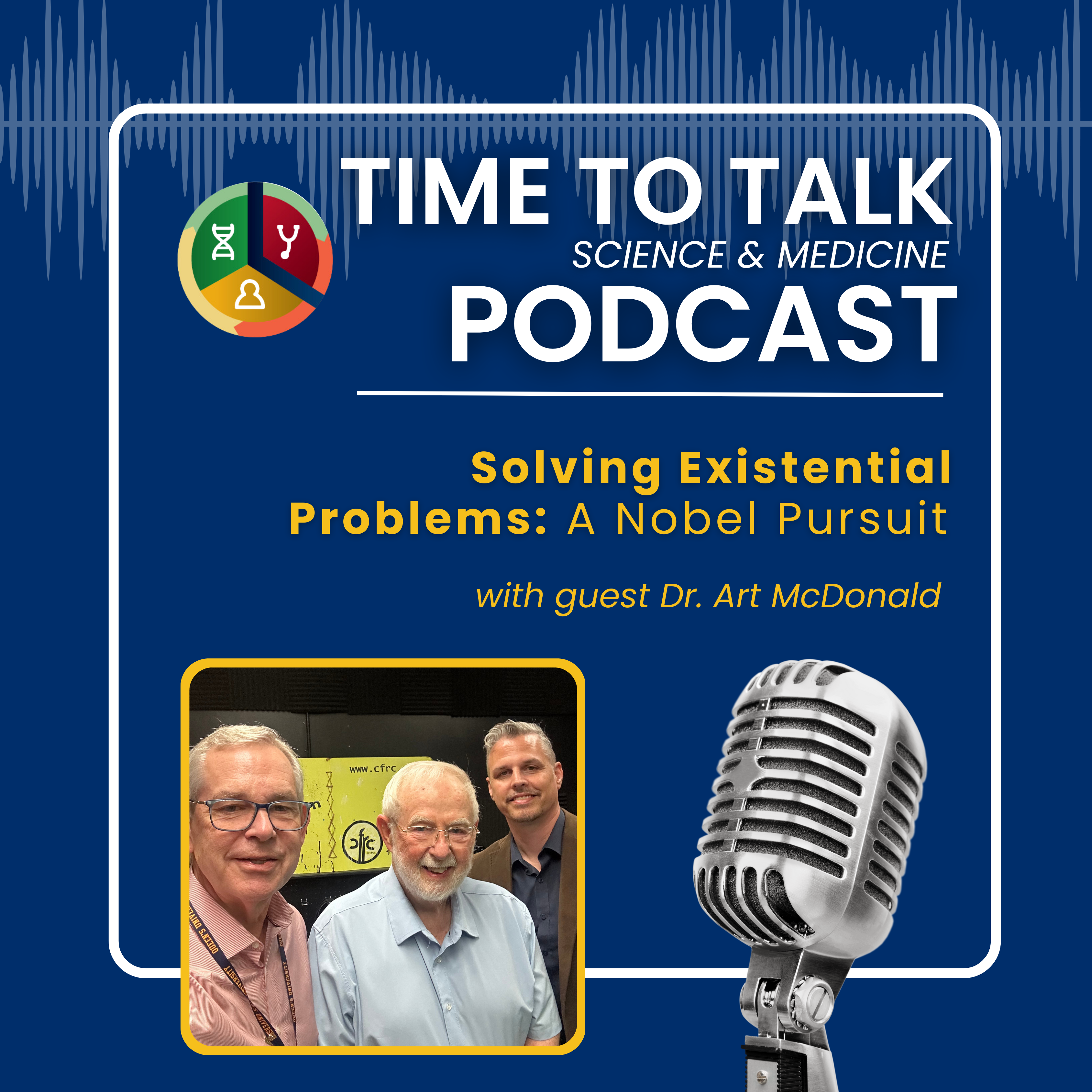
Get to know our special guest Dr. Art McDonald, a native of Sydney, N.S. Canada. He has degrees in physics from Dalhousie University (BSc, MSc) and Caltech (Ph.D.) and fifteen honorary degrees. Following his doctorate, he worked as a Research Officer at AECL Chalk River Laboratories from 1969-1982, then went on to be a Professor at Princeton University from 1982-1989. He returned to Queen’s in 1989 and worked as a Professor until 2013 when he became Professor Emeritus. During this tenure, he held the University Research Chair (2002-2006) and the Gordon and Patricia Gray Chair in Particle Astrophysics (2006-2...
Health for All
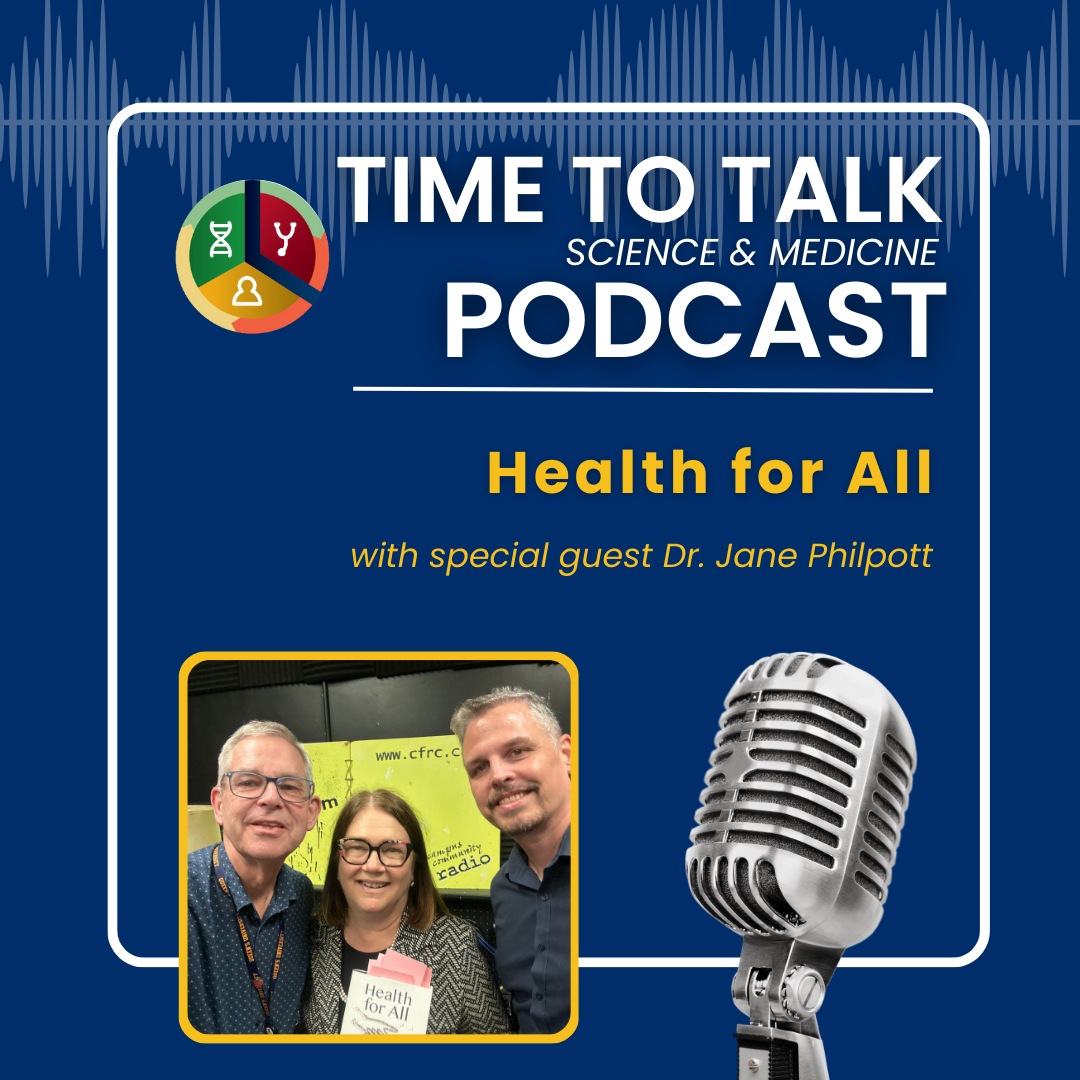
Get to know our special guest Dr. Jane Philpott. Queen’s University appointed the Honourable Jane Philpott as the Dean of the Faculty of Health Sciences and Director of the School of Medicine for a five-year term. During this time she also served as the Chief Executive Officer (CEO) of the Southeastern Ontario Academic Medical Organization (SEAMO) and represented Queen’s University in its relations with partner hospitals, as well as, the Ministry of Health and the Ministry of Long-Term Care.
Dr. Philpott received her Doctor of Medicine degree from the University of Western Ontario. She completed a Fam...
Back from the Dead

Get to know our guest Dr. Will Sharp an Assistant Professor of Medicine in the Department of Medicine at the University of Chicago. Dr. Sharp’s research is to understand the fundamental mechanisms that couple mitochondrial behavior with cellular energetic demand. Specifically, his lab studies how substrate limitations or increased workload of the cell are coupled with altered mitochondrial metabolism, dynamics, and biogenesis to meet these demands. These cellular principles have particular translational relevance in the setting of cardiac arrest, myocardial infarction, sepsis, and traumatic injury.
Dr. Sharp is also investigating the protective effects of mild hypothermia at...
Infectious Diseases – What Happens After The Acute Phase Is Over Will Surprise You

Get to know our guest Dr. Tony Bai, joined the Department of Medicine as an Assistant Professor in the Division of Infectious Diseases in November 2021. He graduated from the University of Ottawa School of Medicine. Subsequently, he completed his core internal medicine residency at Queen’s University and his infectious diseases fellowship at McMaster University. He completed a MSc in Health Research Methodology as part of the Clinician Investigator Program at McMaster University. His main research interests include antibiotic treatment and outcomes for common bacterial infections such as bloodstream infection and pneumonia. In recognition of his research, he received th...
Of Mice and Men, and a Few Other Creatures
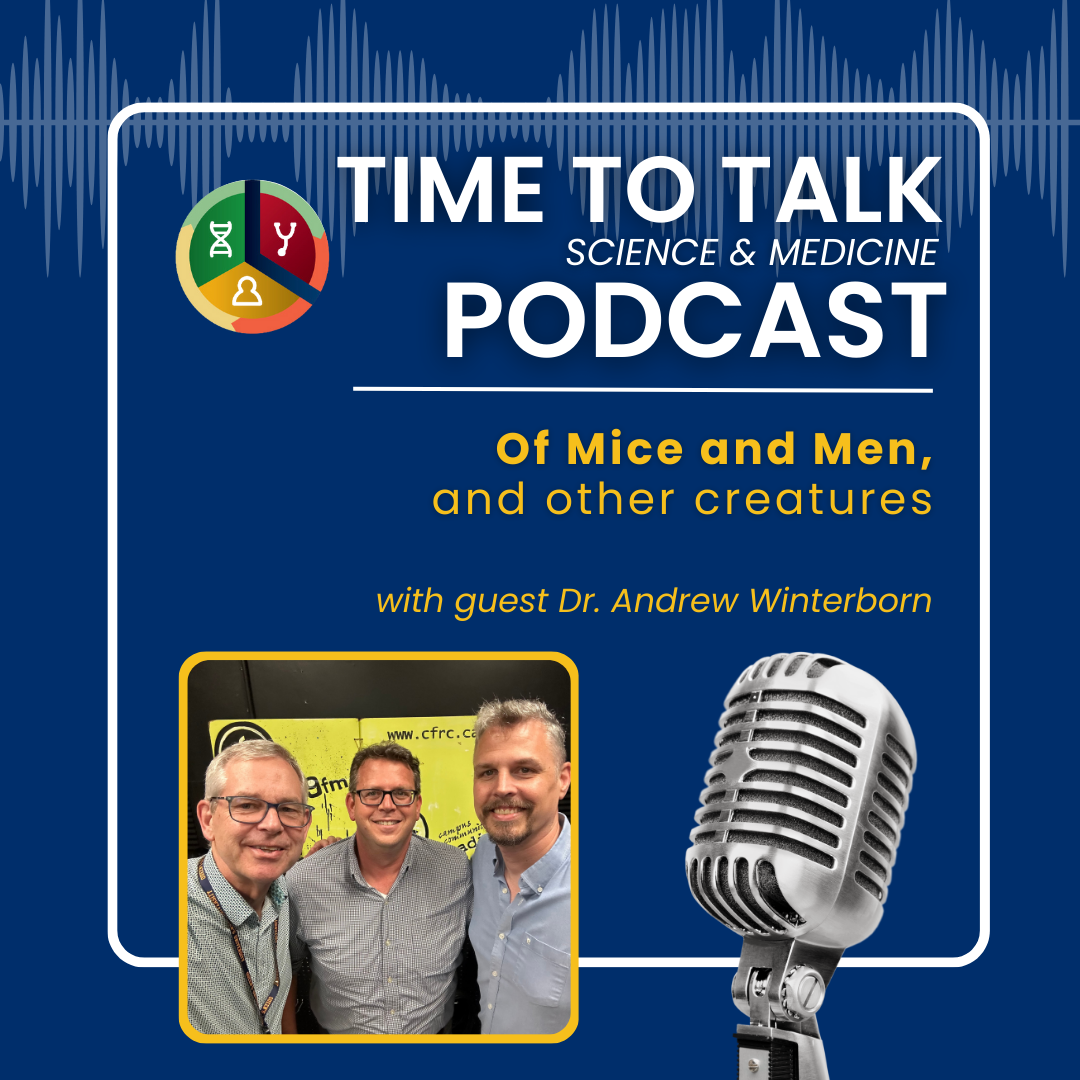
Get to know our special guest Dr. Andrew Winterborn, Queen’s University’s veterinarian. A graduate of the University of Montreal in 2005 with a Doctor of Veterinary Medicine degree, Dr. Winterborn completed his residency at the University of Rochester Medical Centre before joining Queen’s in 2009.
During his time at Queen’s, Dr. Winterborn, an acknowledged expert in the handling and care of pre-clinical models, has led a program of enhancements that have resulted in significant renovations including enlarged rooms and housing units. Internationally, Dr. Winterborn participated in Goats for Widows and Health in Harmony, two programs running i...
Viva La Cardiología: The heartbeat of Latin America
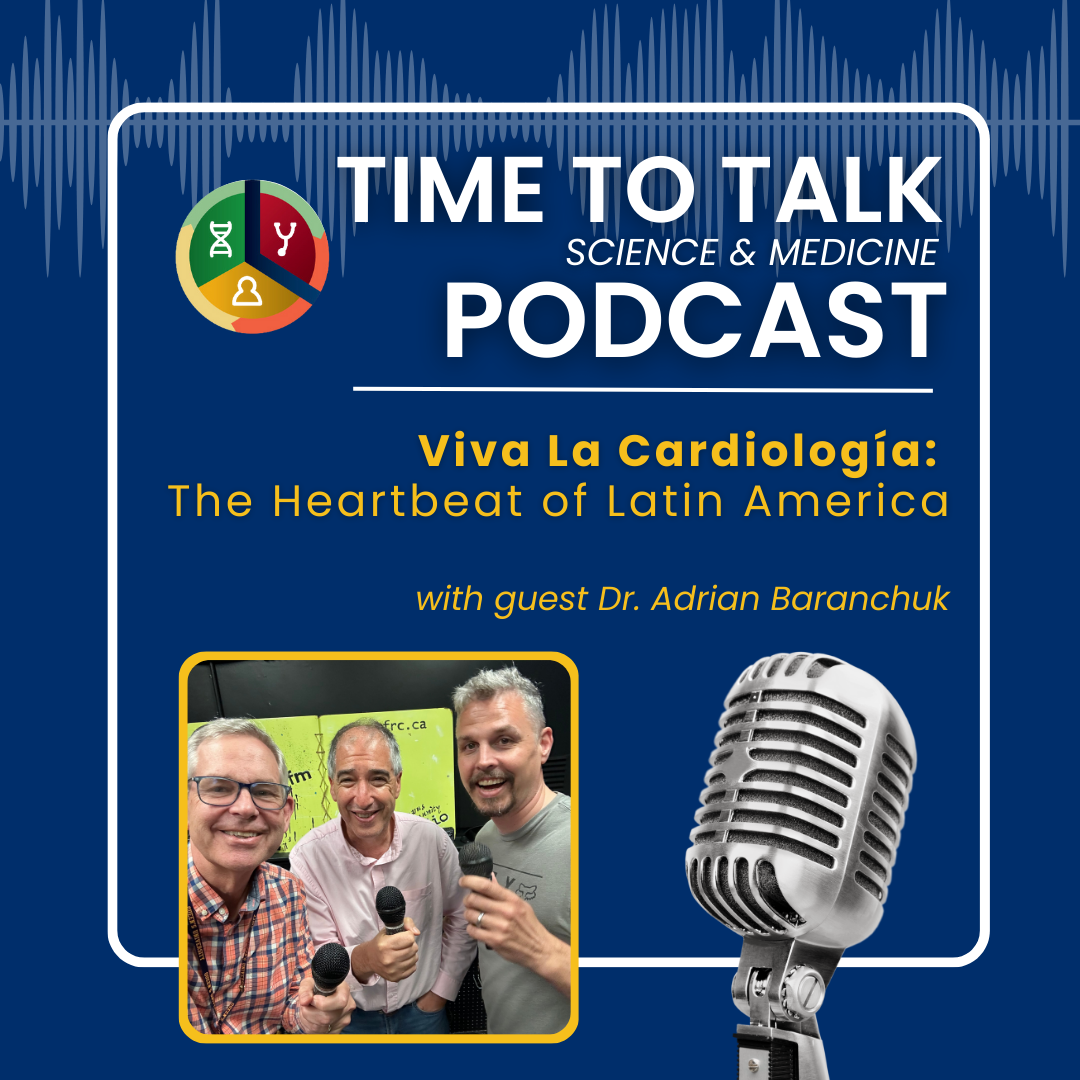
Get to know our special guest Dr. Adrian Baranchuk. Dr. Adrian Baranchuk, a native of Buenos Aires, Argentina, obtained his MD from the University of Buenos Aires in 1990. After qualifying in Internal Medicine and Cardiology (1995), he completed a Clinical Fellowship in Cardiac Electrophysiology (1997). In 2002 he immigrated to Spain for a Research Fellow. Dr. Baranchuk was appointed as a Clinical Fellow in Electrophysiology at McMaster University in September 2003.
Dr. Baranchuk was appointed as an Assistant Professor of Medicine at Queen’s University (2006), promoted to Associate Professor in 2010 and to Full Professor in 2016 (with Tenure). He founded the EP Training Pr...
Cancer Chaos: Exploiting dysfunctional relationships between DNA & chromatin in cancer therapeutics
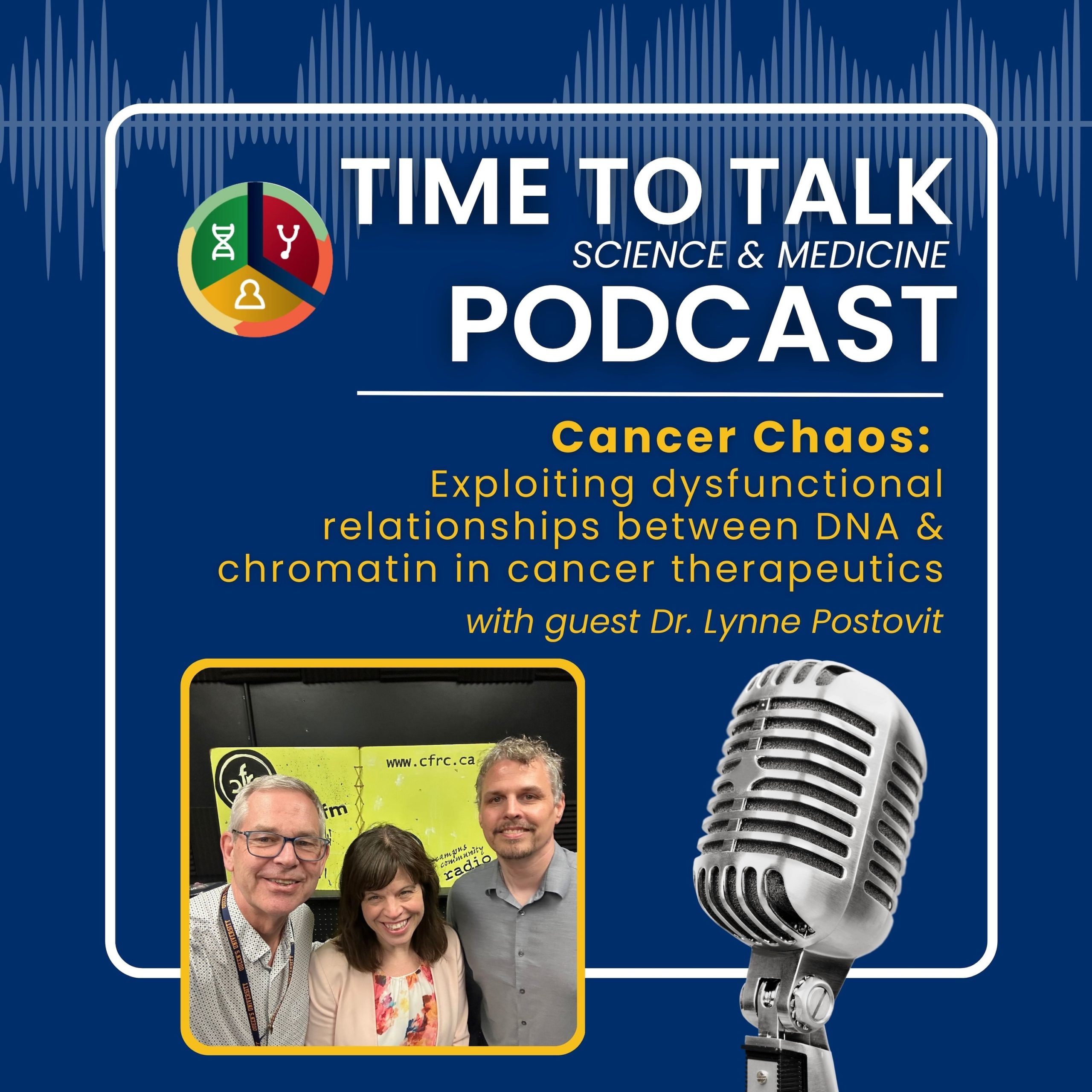
Get to know our special guest Dr. Lynne Postovit. Dr. Postovit earned her Bachelor of Science (Honours) at Queen’s University in 1999. After receiving her PhD in Anatomy and Cell Biology at Queen’s, Dr. Postovit completed a CIHR Postdoctoral Fellowship at Northwestern University in the Department of Cancer Biology and Epigenomics. Dr. Postovit was an Assistant Professor at Western University from 2007-2013 and has been an Associate Professor at the University of Alberta since 2014, where she co-directed the Cancer Research Institute of Northern Alberta.
As a recognized authority on ovarian cancer, Dr. Postovit has published more than...
The Marvelous Universe of Cell-Based Therapy: First-In-Canada Clinical Trials to Regrow the Lungs of Premature Babies
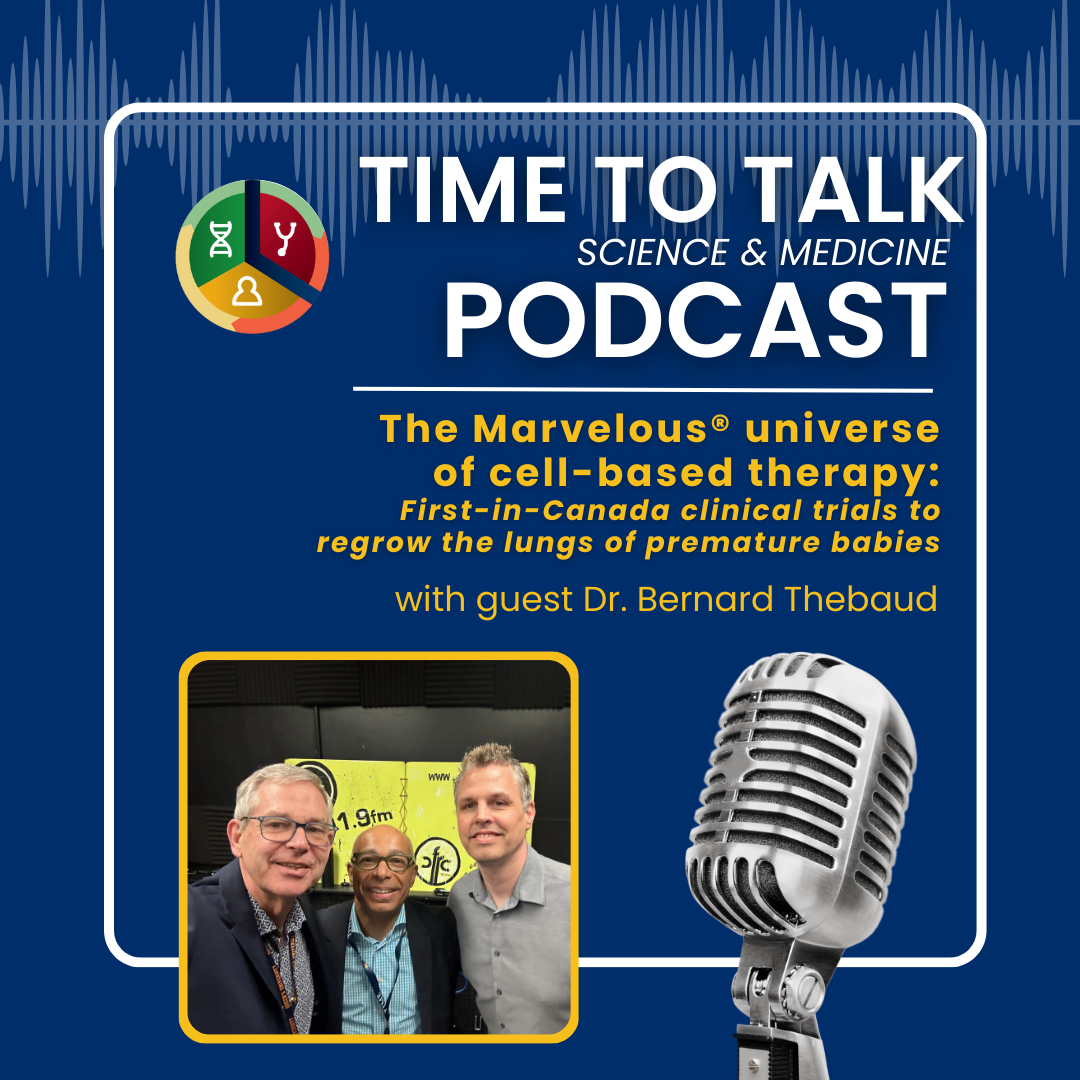
Get to know our special guest Dr. Bernard Thébaud. Dr. Thébaud is a clinician-scientist with a focus on the clinical translation of stem cell-based therapies for lung diseases. Dr. Thébaud is a senior scientist with the Ottawa Hospital Research Institute (OHRI) and Children’s Hospital of Eastern Ontario Research Institute (CHEO RI), and a neonatologist with the Children’s Hospital of Eastern Ontario (CHEO), where he provides care to critically ill newborns. He is a Professor of Pediatrics at the University of Ottawa and holds the uOttawa Partnership Research Chair in Regenerative Medicine.
Dr. Thébaud...
Made in Canada CAR-T therapy: Reprogramming a patient’s cells to kill their cancer
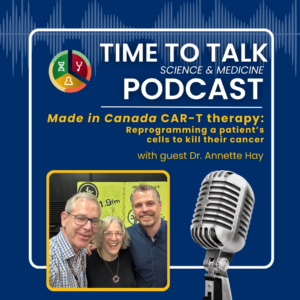
Get to know Dr. Annette Hay. Dr. Annette Hay is a Hematologist within the Department of Medicine, Queen’s University, cross-appointed to the Departments of Oncology and Pediatrics, and a Senior Investigator with the Canadian Cancer Trials Group (CCTG). She became Chair of the Division of Hematology in January 2021. Commencing at the University of Dundee (Sept 1996 – June 2001, MB ChB received July 2001), Dr. Hay completed her medical and hematology training in Scotland. In 2012 she undertook a 30-month Fellowship with the NCIC Clinical Trials Group (now CCTG), transitioning to a Senior Investigator role in 2014. Dr. Hay’s clinical practice includes all areas of...
What every young women should know about alcohol consumption
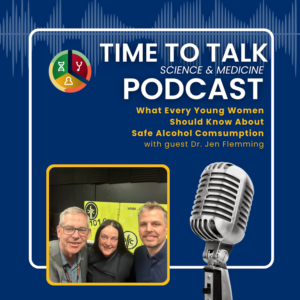
Get to know Dr. Jennifer Flemming – Dr. Flemming is an Associate Professor of Medicine and Public Health Sciences at Queen’s University with clinical training in gastroenterology, hepatology and liver transplantation. After completing her Internal Medicine and Gastroenterology training at Queen’s University, she completed two years of advanced hepatology and a Master’s in Clinical Research at the University of California San Francisco.
In her clinical practice she manages a wide variety of patients with chronic liver disease from early disease stages to decompensated cirrhosis, hepatocellular carcinoma and liver transplant. She is a clinician scientist who leads a...
Hocus POCUS: Detecting early signs of heart disease
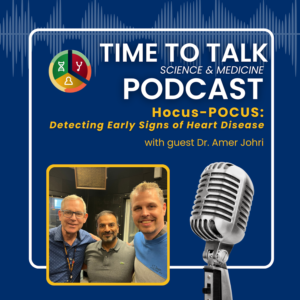
Get to know Dr. Amer Johri – a professor and clinician in the department of medicine at Queen’s University, Kingston, Ontario. Dr. Johri is an expert on 3D echocardiography, interventional echocardiography, and Handheld Cardiac Ultrasound. His research focus involves patient-oriented research projects and the innovation of non-invasive techniques to predict and diagnose atherosclerotic cardiovascular disease. This includes: carotid intimal medial thickening, 3D strain and 3D stress testing, cardiopulmonary point-of-care ultrasound (POCUS), screening of special populations such as competitive athletes and women, analysis of vulnerable atherosclerotic carotid plaque through 3D, composition, and novel ultrasound contrast applications. He is chair of the ASE...
Women That Bleed
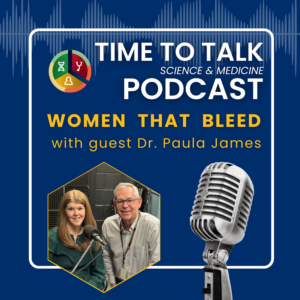
The TIME podcast is getting a bit of an update! We would like to introduce: ‘TIME to Talk Science & Medicine’ with hosts Dr. Stephen Archer and Dr. Charlie Hindmarch. This new podcast is designed to highlight translational researchers at Queen’s University. Our goal is to focus on a translational researcher, to learn about where they’ve come from, what motivates them, what are their ‘dangerous ideas’ and how their research will change the world!
In our first podcast, get to know our guest Dr. Paula James, a Professor in the Department of Medicine, with cross-appointments to Pathology & Molecular Medicine and P...
When lung cancer calls for extra help!
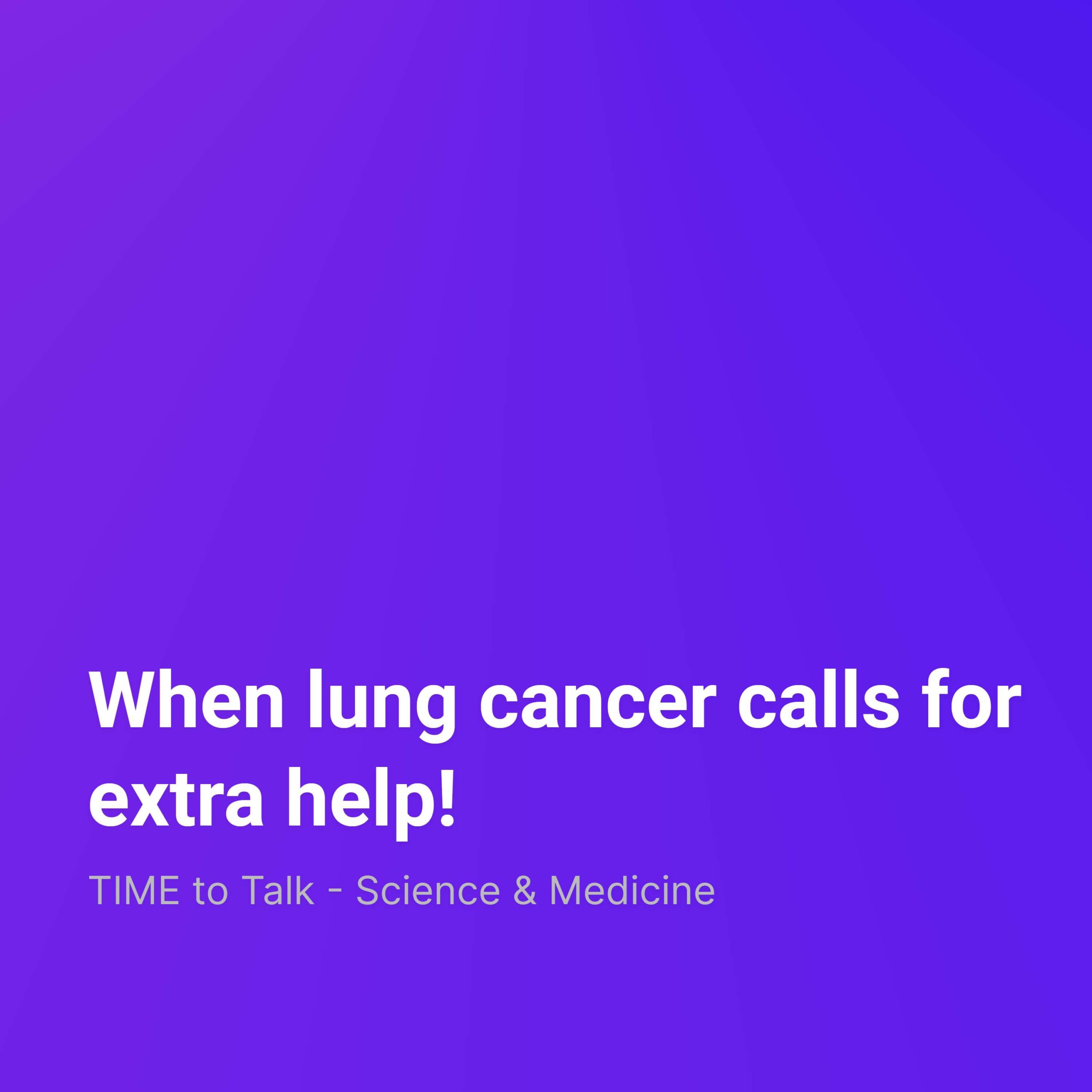
In medicine, we often use reviews and guidelines to inform best practices that are safe, and effective and are updated regularly based on new forthcoming evidence. The treatment of malignant superior vena cava syndrome, a rare condition where cancer causes obstruction to the blood flow to the heart, is less well studied and has not been reviewed in over a decade. We found that there was very little evidence on common practices like use of steroids or diuretics to treat this condition. The evidence on using conventional treatments like chemotherapy and radiation therapy, were from many decades ago and do...
Histamine Production by the Gut Microbiota Induces Visceral Hyperalgesia through Histamine 4 Receptor Signaling in Mice
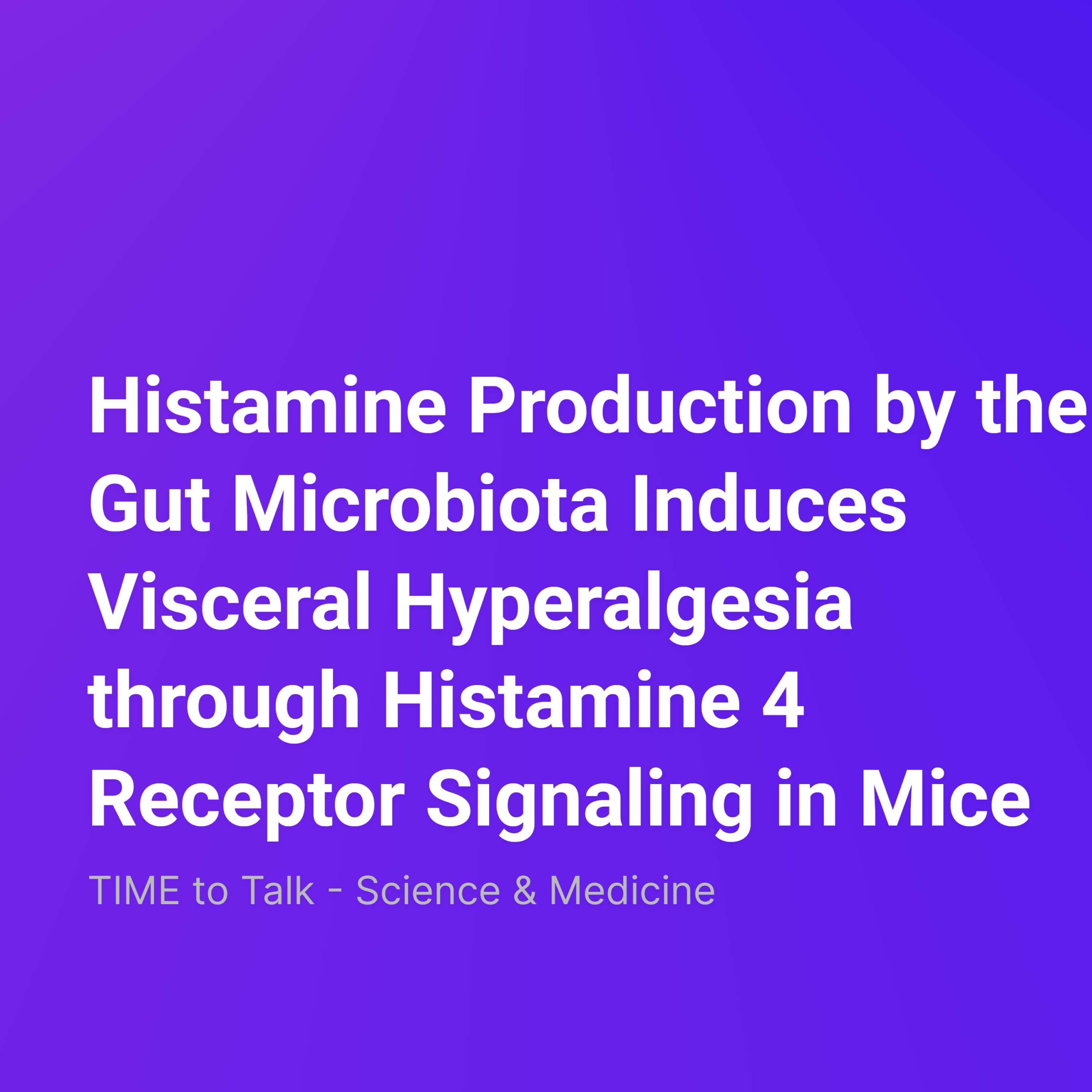
Synopsys: Irritable bowel syndrome, or IBS, is a common disorder characterized by abdominal pain and altered bowel habits. While there may be multiple mechanisms that lead to development of IBS, the bacteria in our gut appear to play an important role in a number of IBS patients. We discuss novel research by scientists at Queen’s University and McMaster university where they found that a proportion of IBS patients have a specific bacteria in their intestine that produces large amounts of histamine, a mediator that can increase pain signaling in the gut. In mice that were colonized with patient sto...
From cardiology to coronavirus; how a team of international scientists pivoted their research to rise to a global challenge
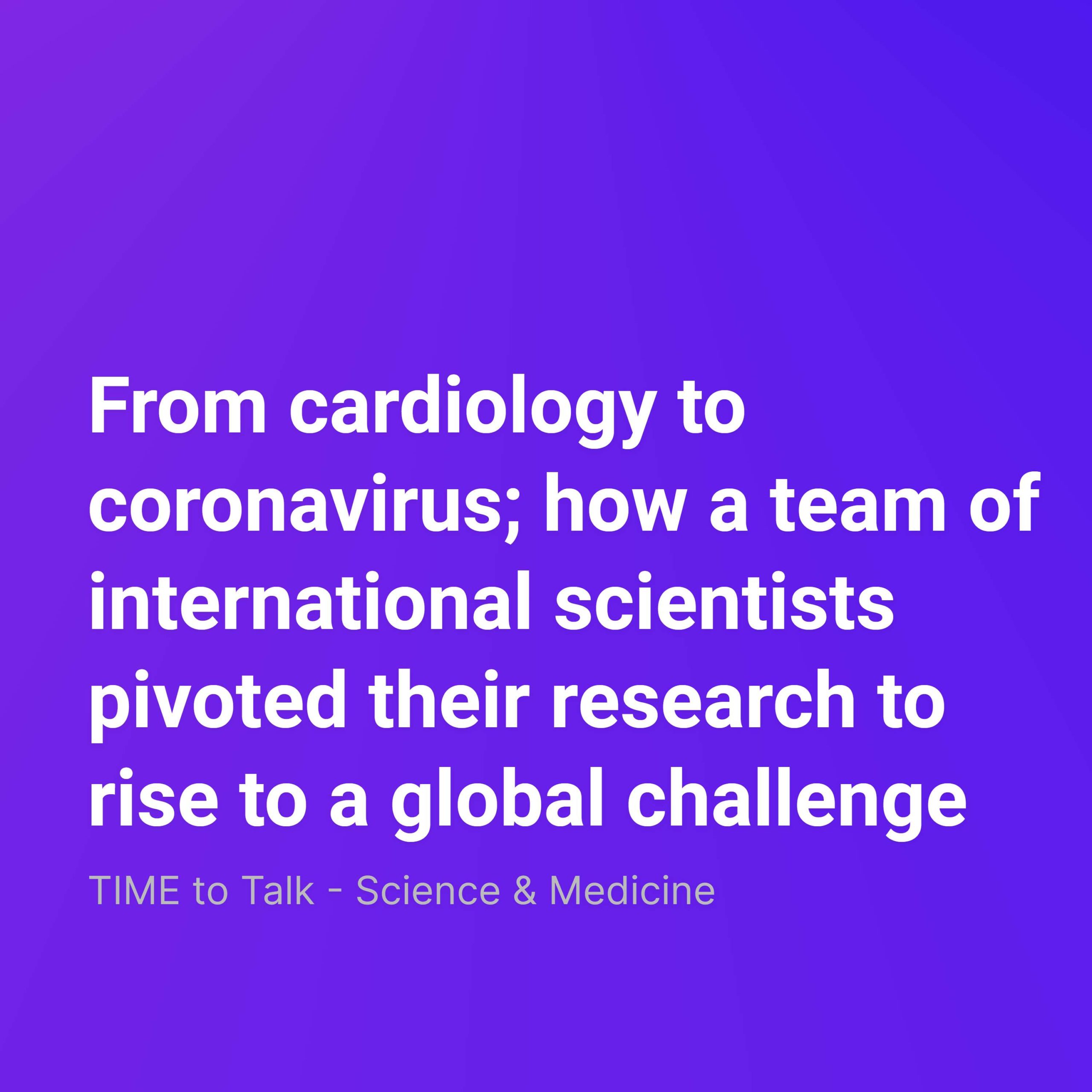
Synopsys: In early 2020, Dr Archer (Queen’s University, Canada) proposed a novel mechanism for the way in which the SARS-CoV-2 virus responsible for COVID-19 might affect our lungs. He proposed that this virus causes damage to cells by targeting the powerhouse of the cells, structures known as mitochondria. Dr Archer has spent the last two years building an international and diverse team of scientists to perform research that tests his hypothesis which provided a new understanding of coronavirus infection. In this podcast recorded for the Queen’s Translational Institute of Medicine (TIME), we will invite Dr Archer and members of his...
